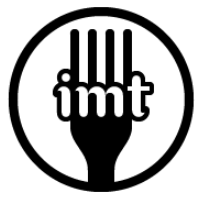by Tara Deliberto, PhD
In the treatment of anorexia nervosa / atypical anorexia nervosa (i.e. “AN Disorders” is IMT), it is important to mindfully address the topic of “goal weight,” the weight at which the medical doctor predicts a patient will be healthy. Although knowing a given patient’s “goal weight” is helpful for the treatment team, I have found this is less constructive for patients for several reasons discussed here.
When one particular number is provided to the patient (e.g. Xlbs), the patient can rigidly adhere to that weight as the only weight at which they can be. As such, even one ounce above that weight could trigger a relapse of eating disorder behavior. Of course, no one person can maintain their weight at exactly the same number throughout their life. This is particularly true for adolescents who are growing and will need to psychologically accept different numbers throughout their lifetime. It is also often the case that the goal weight provided is too low of a weight at which for the patient’s body to function healthily. Further, from a psychological perspective, it is more adaptive to foster cognitive flexibility and the tolerance of uncertainty.
As such, rather than tailoring the treatment towards the achievement of a specific weight, I provide about a 10-15lb weight range. The lowest number in that range is typically the number that the MD defines at the "goal weight." I frame what the MD terms "goal weight" to patients as the lowest weight at which their body is likely to be healthy. For instance, if an MD says that an adolescent patient's "goal weight" is Xbs, I might say to the patient:
"The weight range we are currently aiming at in treatment is approximately 100-110lbs. This is because 100lbs is likely the minimum weight at which your body is to be healthy. That said, once your body is 100lbs, we will need to reassess how healthy your body actually is at that time. Also, it is impossible for your body to stay at exactly 100lbs forever. For one thing, you are growing and you are going to need to gain more weight as you get older. Additionally, your weight will always fluctuate within a weight range because it's impossible to keep your body at exactly the same weight every moment of the day. For all of these reasons, we can only estimate that your weight will need to fall within the 100-110lb range to be healthy."
If the patient protests and/or demands one specific number, I might state that "the truth of what is healthy for a patient is not up for negotiation." Clinicians are only in the business of accurately reflecting the truth, not forcing it to fit the demands of the eating disorder; and the truth of the matter is that a "goal weight" is an estimate, patients often need to gain more weight to be healthy, and their weight will fall within a range at any given time. If the person cannot help but be driven by the eating disorder to negotiate, simply move the conversation onto the next important clinical topic.
Thanks for reading! Please feel free to leave any questions and comments below.

